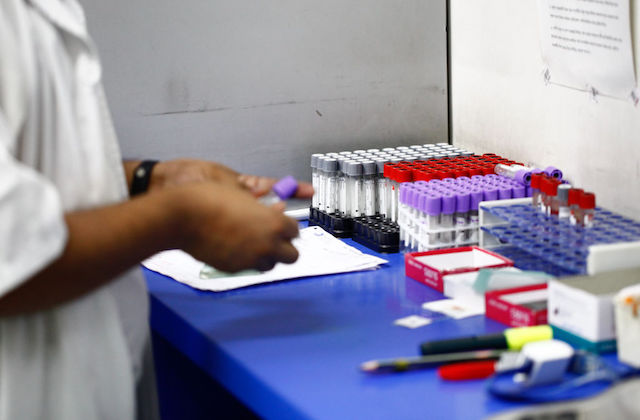Eight years ago, a study found that Black scientists were 10 percent less likely than White ones to get National Institutes of Health (NIH) funding for research. That revelation led to the NIH launching a $500 million, 10-year initiative to improve the situation, but a new study reveals that the funding gap has since doubled to 20 percent.
According to an article published Wednesday (October 23) by The New York Times, this disparity in funding is not a result of a less worthy pool of Black scientists applying for grants. It instead often comes down to the research topics they choose and the government’s unwillingness to fund them. Per The Times:
rnt
George Santangelo, senior author of the new study and director of the NIH’s Office of Portfolio Analysis, said “an inordinately large fraction of African-American applicants” applied for funding in the topic areas less likely to win funding. Nearly 40 percent of proposals from Black researchers were on a cluster of eight topics, most deemed less likely to be funded.
t
Some of the keywords used in applications less likely to get funding: “socioeconomic,” “patient” and “disparity.” The lowest award rate was for those using the terms “ovary,” “fertility” and “reproductive.” Successful applications, by contrast, tended to use words like “neuron” and “cartilage.”
The new study analyzed data from nearly 160,000 scientists who applied for funding between 2011 and 2015. Writes the Times: “It showed that clinical research on community-level health interventions has a harder time getting NIH support than research focused on cellular science, and that Black scientists are more likely to be seeking to do the former.”
Study co-author James Anderson, deputy director of NIH's Division of Program Coordination, Planning and Strategic Initiatives, told Science magazine, “This study just looked at the numbers. The next step is to ask the people who made the decisions.” He added that there are no current plans for studies that would do this.
Economist Donna Ginther, the lead author of the 2011 study, told The Times in an emailed statement that the findings highlight “a systemic problem where hard/lab science is valued over applied/patient-focused science.” She also stressed that patient-centered research is harder to control versus a lab experiment, meaning it may be seen as more of a funding gamble for those reviewing NIH applications.
“The NIH’s funding system is partly self-reinforcing—grants are reviewed by experts chosen to some extent based on their previous success applying for grants,” writes The Times. Critics of NIH funding policies recommend making the selection process blind or choosing promising scientists as opposed to research ideas (much like how the MacArthur Fellowship, or “Genius Grant,” is awarded). But the authors of the new study don’t think their results are likely to trigger a restructuring of how NIH grants are distributed.
“This [new study] could be a message to people interested in intervention-based research that they won’t find the support they need to be successful in academia,” Alycia Mosley Austin, a neuroscientist and assistant dean of diversity at the University of Rhode Island, reportedly said in an interview. “Historically, the type of science that gets held up as important is research advancing pure knowledge about how the world works, and the body. Looking at questions of how we stop a certain group of people from dying of a certain thing isn’t as romantic.”
